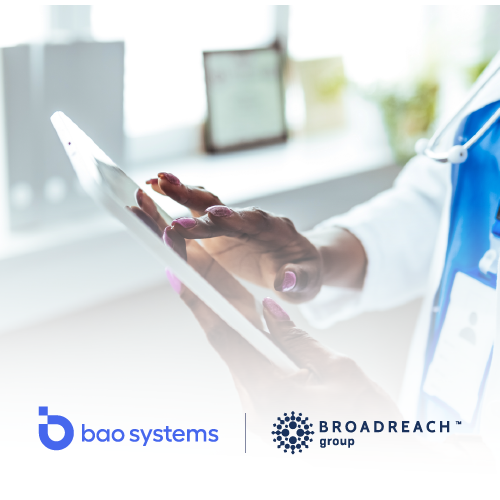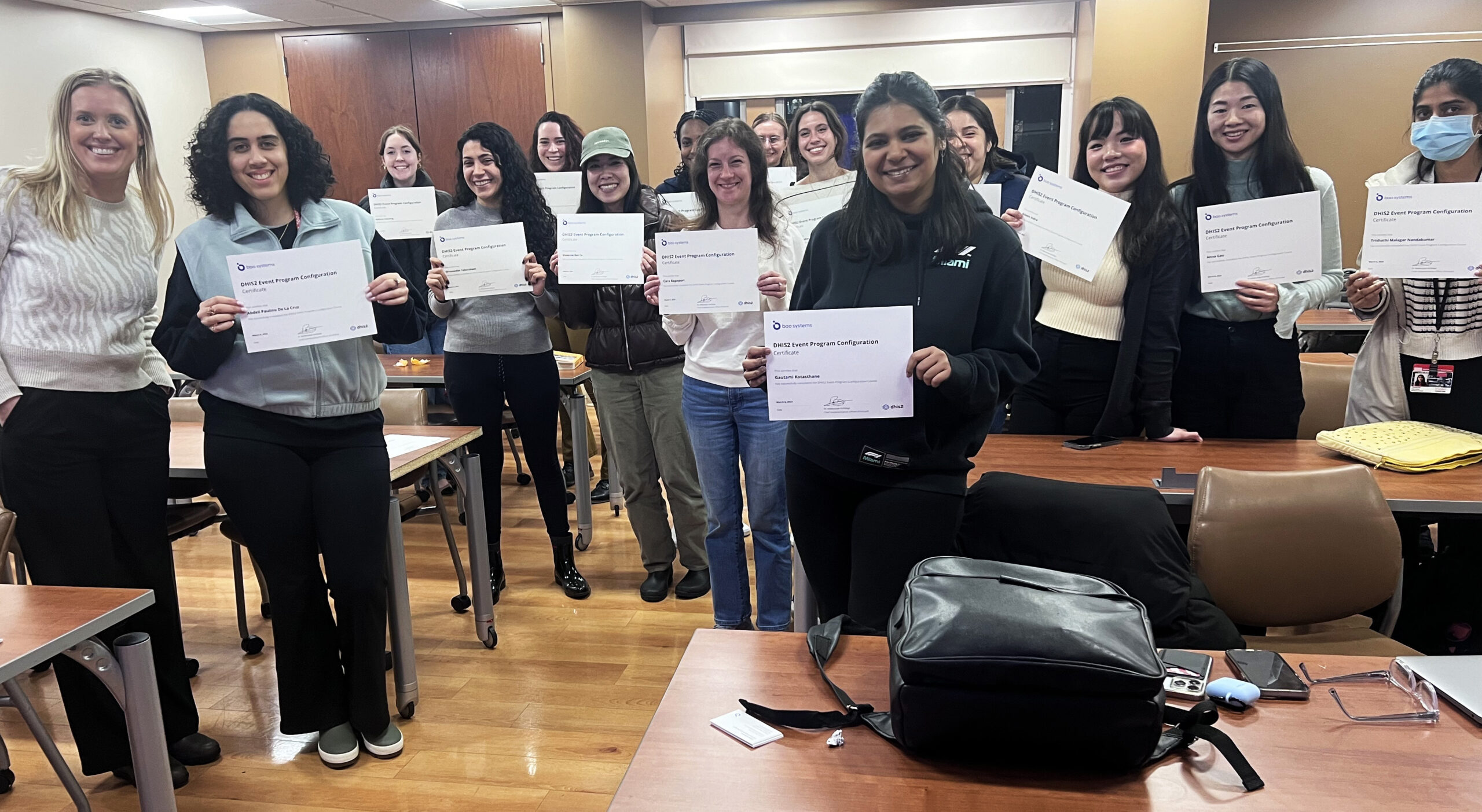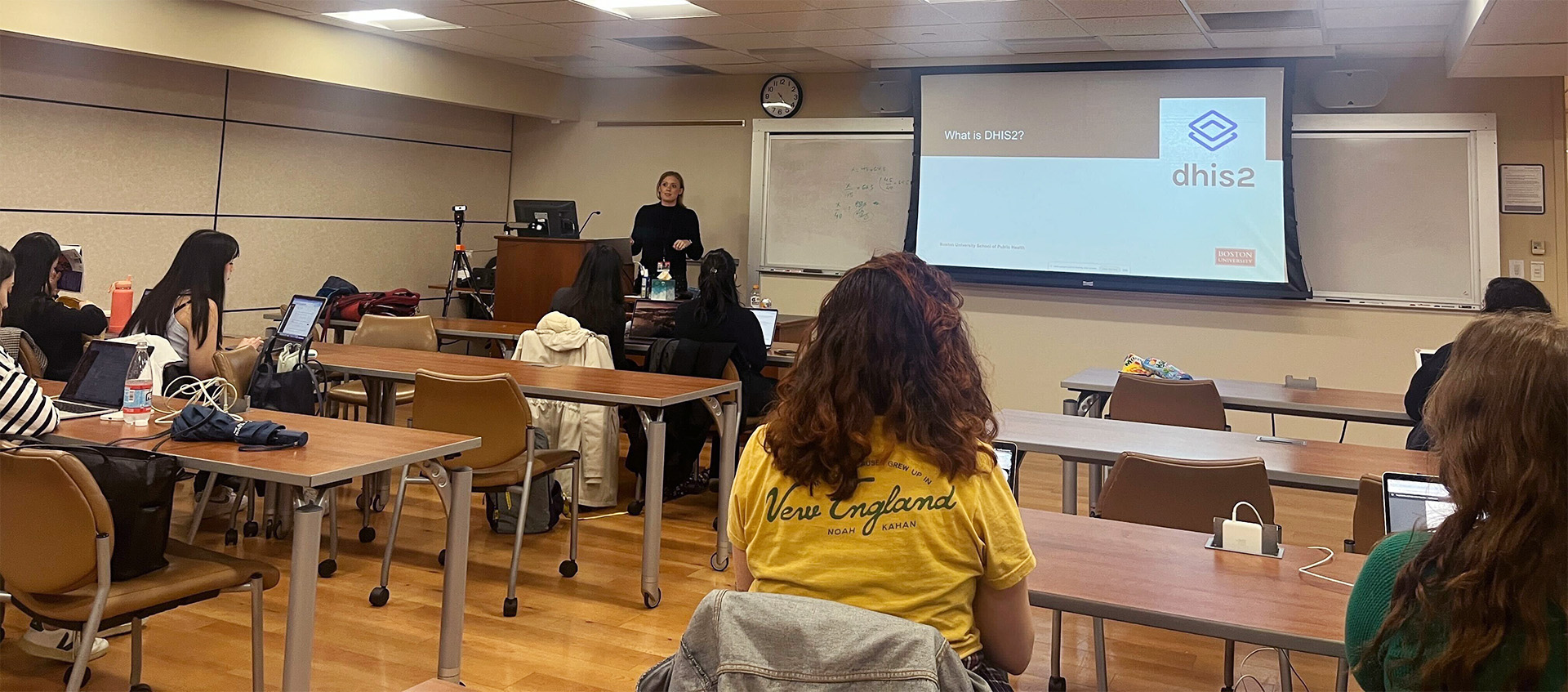
Boston University leverages AI and emerging mobile health tech in course with BAO Experts
2 Apr 2024
Boston University School of Public Health master’s students now have the opportunity to learn how to leverage cutting edge mobile technology to improve health outcomes.
With a focus on harnessing the potential of digital solutions to capture and manage data, BAO Systems’ experts Katherine Lew and Megan Kill have partnered with Jimi Michel, a Digital Health Technical Advisor, to offer Using Mobile Technology to Improve Health Outcomes.
Through this course, future public health leaders will acquire practical skills in:
- designing, implementing, and deploying digital health solutions tailored to real-world challenges,
- leveraging data and analytics for informed decision-making,
- interacting with technical IT experts, and systems security and compliance teams,
- and using advanced tools through AI and major digital health tools.
Navigating the Digital Health Ecosystem
Digital health is a critical component of public health programs. In the last decade, these programs have seen rapid growth as health systems across the globe slowly mature from paper-based tools to technology-based solutions.
Digital health refers to the development and use of technologies in health systems to improve population health and well-being. These include, but are not limited to, health informatics, mobile health, telemedicine, data analytics, big data, and artificial intelligence.
Recognizing the need to inform how to incorporate these tools and technologies into public health programs, BAO Systems’ epidemiology and analytics in-house experts collaboratively developed Using Mobile Technology to Improve Health Outcomes.
This master’s level course targets public health students at the Boston University School of Public Health interested in learning about the digital health ecosystem, emphasizing how to use mobile technology to improve health outcomes.
With guidance from BAO Systems experts and other industry experts, students gain insights into the technical and operational aspects of developing and scaling digital health interventions.
Equipping Future Public Health Leaders
Hand-on experience with DHIS2 is integrated into this course and BAO Systems gives students a certificate stating successful completion of the DHIS2 Event Program Configuration module.
By the end of the semester, these masters of public health students will possess a comprehensive understanding of digital health terminology and trends, and the use of computer science in the public health profession.

They will know how to identify the best fitting tech solution for a particular program or environment and be prepared to articulate the landscape of digital health programs confidently and improve health outcomes.
For BAO Systems, being present in the classroom provides the first-hand opportunity to equip the next generation of public health officials with the tools to integrate these quickly evolving tech solutions into their careers and make a global impact.
Check the course promotional material here.
Spotlight




